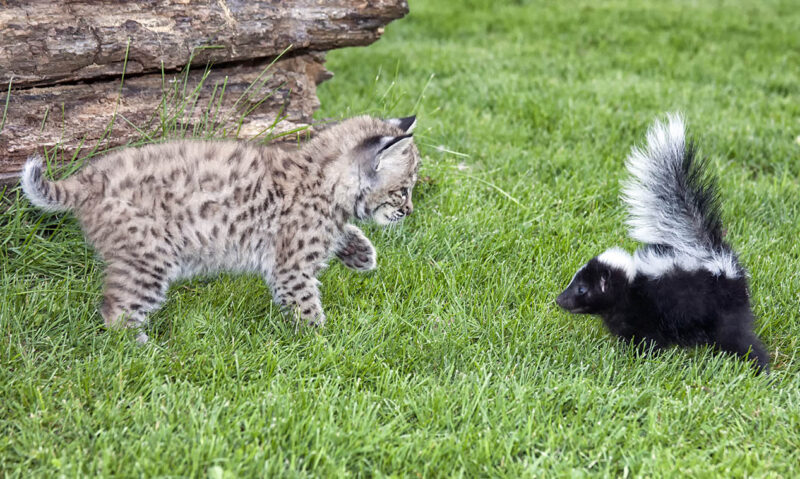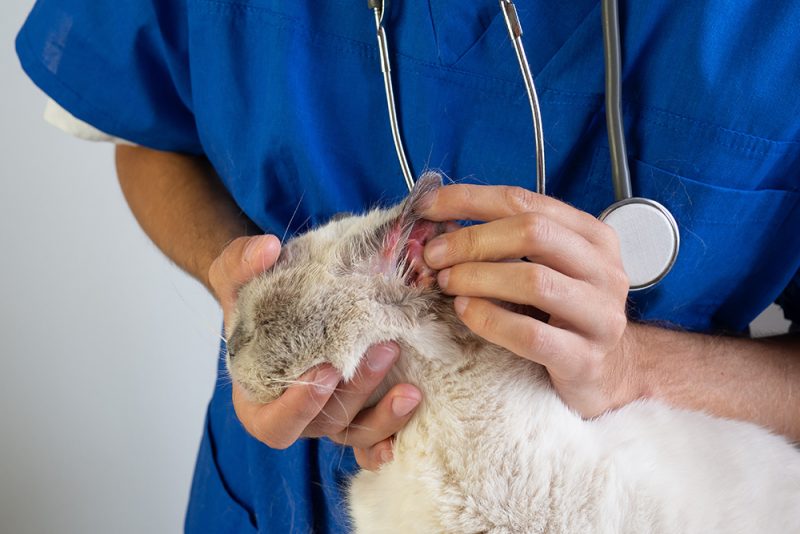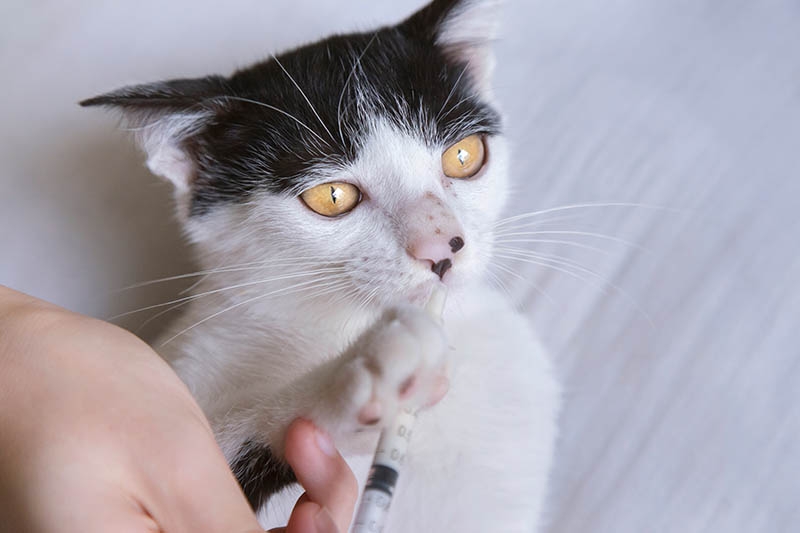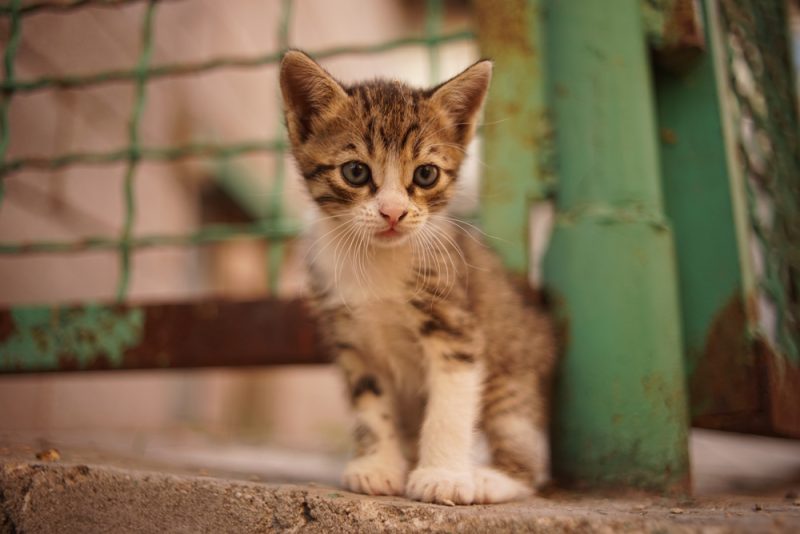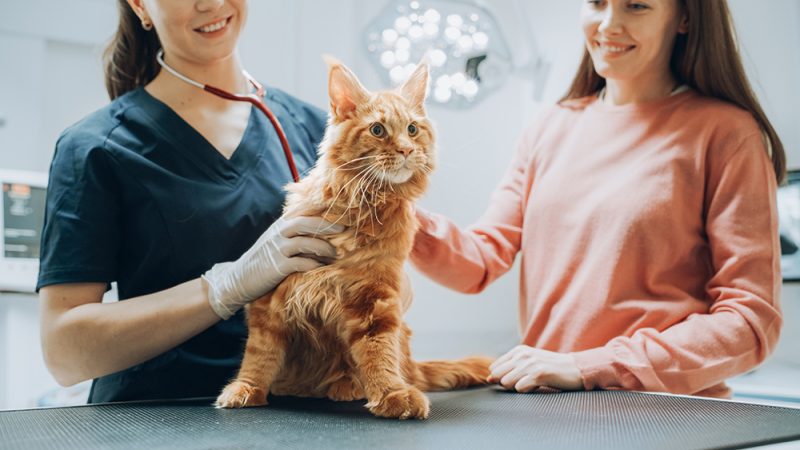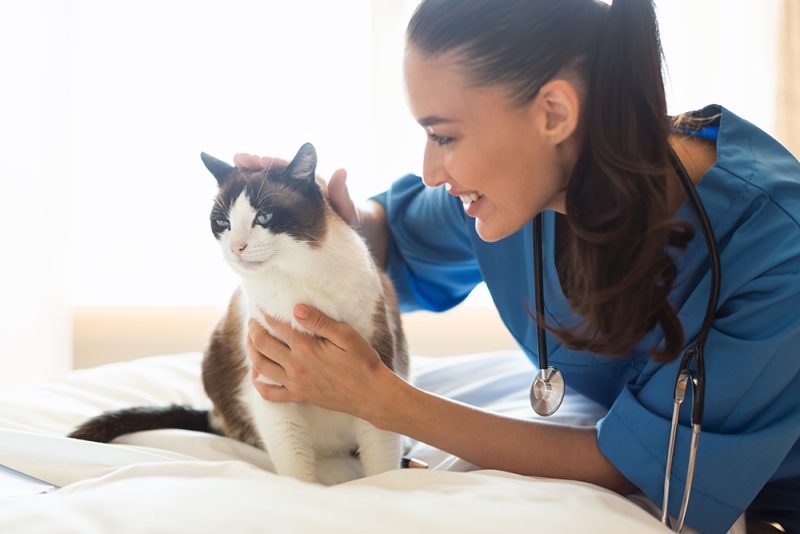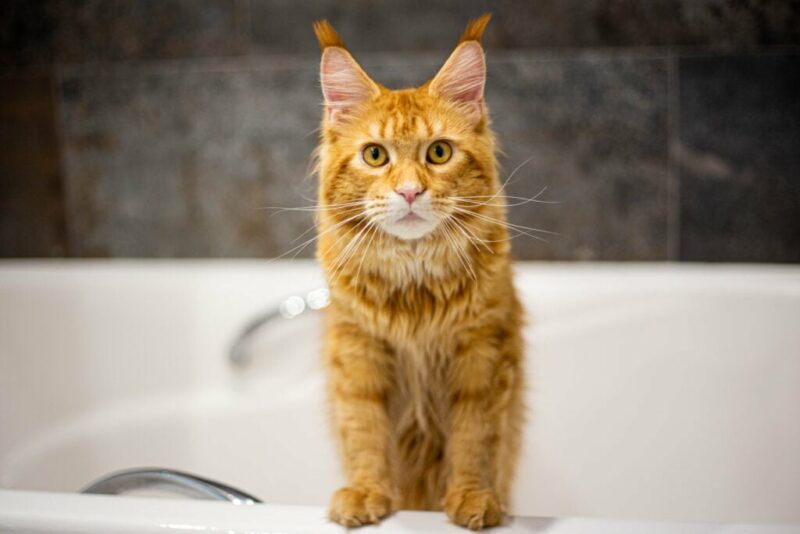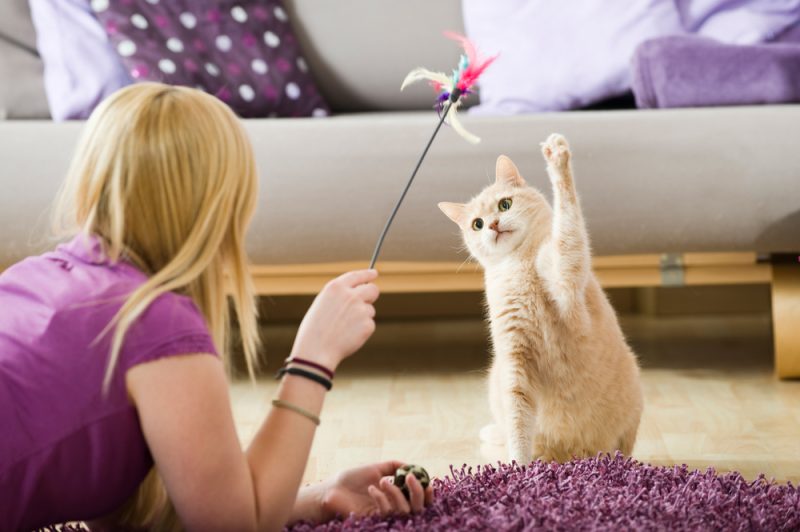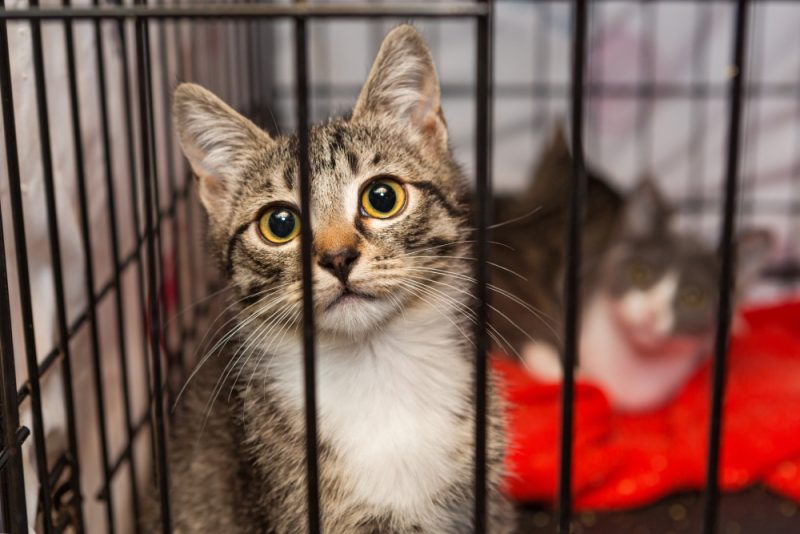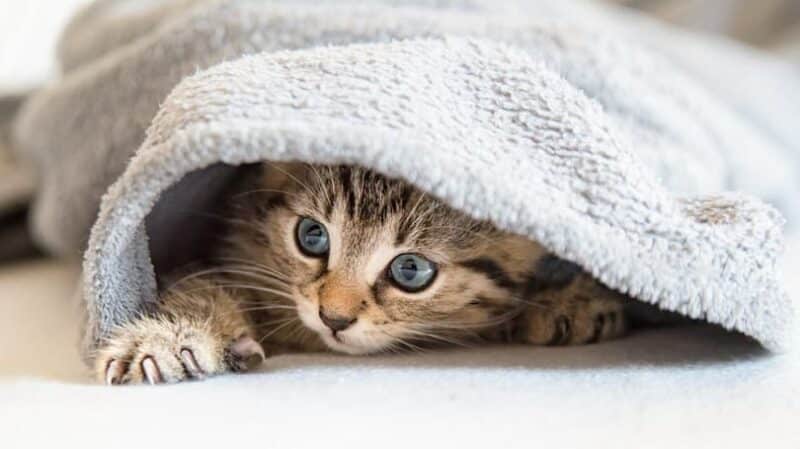If you’ve noticed that your cats seem to have an affinity for ears and earwax, you’re not alone. Many cat owners first notice it when watching their cats groom each other. Often, cats seem to spend more time licking and grooming their ears than any other part. However, it’s generally less likely that your cat will dig through the trash to get the old Q-tips that you’ve already used to clean your ears.
In truth, it seems that some cats are drawn to earwax more than others. They may like the waxy golden substance, and it’s not unusual for your cat to try to lick your ears. To determine why, we’ll take a closer look at cats and earwax, but be aware that the majority of this info is based on pure speculation.
What’s in Earwax?
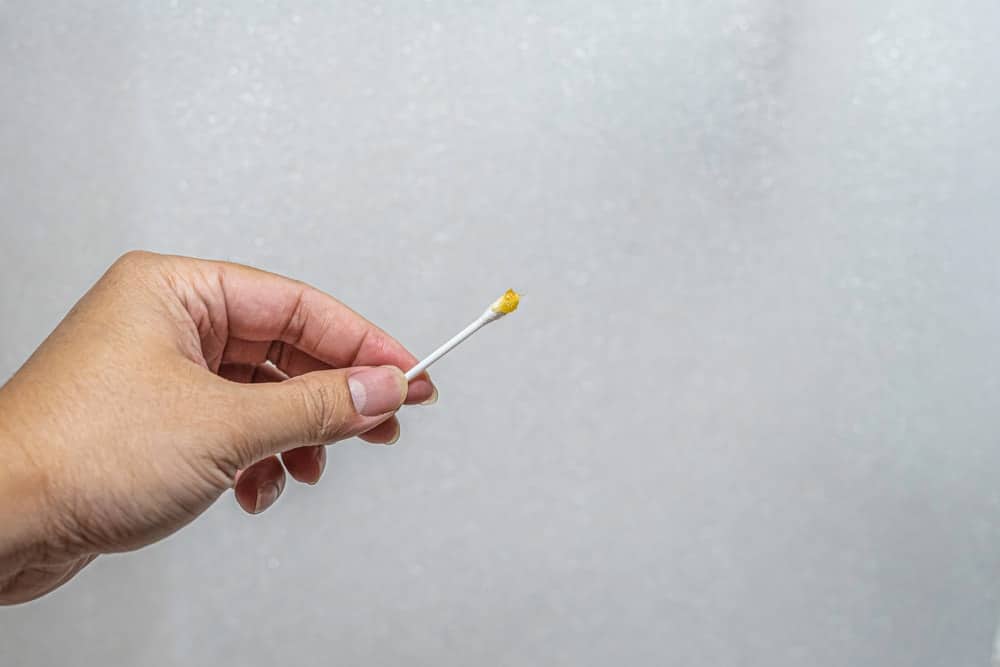
You’ve probably never given much thought to what’s inside your earwax, and that’s perfectly normal. For most, it’s just another bit of waste the human body creates. However, there’s more in your earwax than you might realize. Earwax is full of dead skin cells from the inside of your ears. Fatty acids also accumulate in earwax, as well as cholesterol.
Why Do Some Cats Like Earwax?
These fats and proteins may, in an unusual way, represent nutritional value to a cat, even if we would never think of earwax as a nutritional substance. Therefore, some cats may be naturally attracted to it. Subconsciously, their brains may be picking up the scent of the proteins and fats as nutrition, which attracts them to it. That is why you might catch cats licking each other’s ears so fervently. They’re essentially eating the wax!
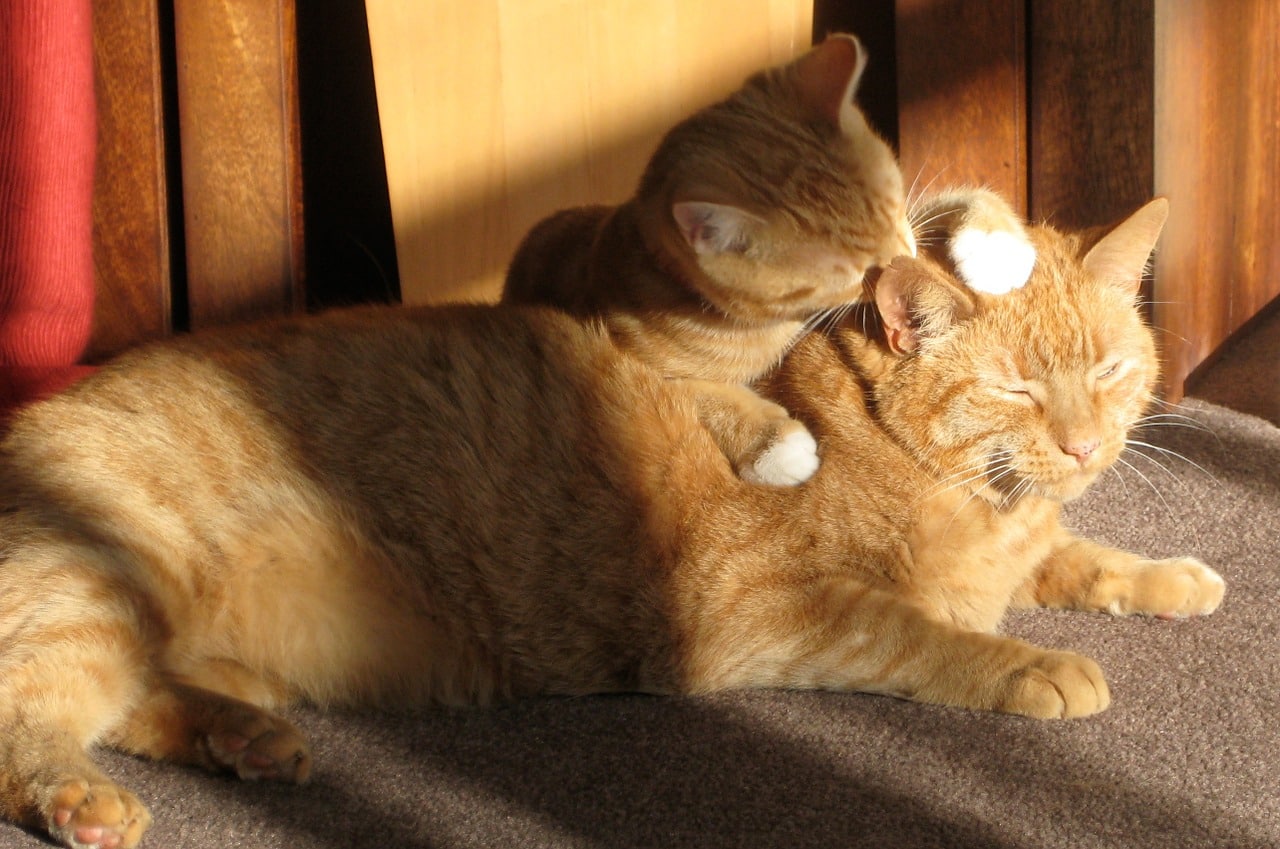
How Are Cats Drawn to Earwax?
Why is a cat’s nose so sensitive to the scent of fats and proteins? It appears that cats have developed a powerful sense of smell to make up for their lack of taste buds. On average, humans have anywhere from 2,000 to 10,000 taste buds, but cats have just 500!1 So, their noses work double duty, attracting them to the sources of nutrition they need.
Cats can’t taste anything sweet. They’re attracted to fats and proteins, like those found in earwax. A feline’s nose isn’t nearly as strong as a dog’s since cats have fewer scent receptors. But cats might be more discerning with their noses, after all.2
They use their sense of smell to make up for taste, in a similar way to how our noses enhance our eating experience. If you’ve never tried it, hold your nose while eating something. You’ll be amazed at how little you taste it when the scent is removed.
What if Your Cat Tries to Lick Your Ears?
Cats often use grooming as a bonding experience. However, when digging into each other’s ears, they’re going after more than just bonding. So, when your cat starts licking your ears, you might think they’re trying to bond, and maybe they are, but they’re possibly also trying to get something tasty that they can smell inside your ear. It might seem gross, but that may be the reason. Unfortunately, scientific research on this topic is lacking at the moment, so we cannot be sure.
Should you let your cat engage in this behavior with you? Probably not. Your cat’s saliva is full of bacteria that you don’t want to get into your bloodstream through any minor abrasions you may not be aware of.
Moreover, cat saliva is the common culprit for cat allergies, alongside the oils from their skin. Getting a high concentration of that allergen deposited on your skin and into your ear canal isn’t the safest action, due to the proximity of your airways.
Conclusion
As it turns out, some cats do like earwax. The scent of dead skin cells, fatty acids, and cholesterol is just too appealing for a feline to resist. So, you’ll know why when you see your cats engaging in excessive grooming of the ears or going after your used Q-tips. It’s nothing to worry about. However, you probably shouldn’t let your cat go after the wax that’s still inside your ears, just as a general safety precaution.
See Also:
Featured Image Credit: AJR_photo, Shutterstock




